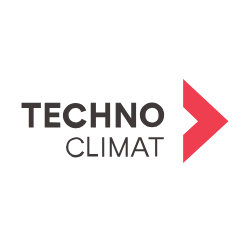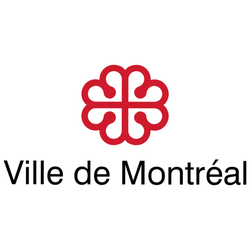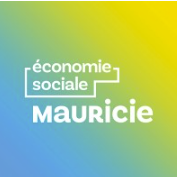
Community Interaction Program — Awareness-raising
At a glance
- Maximum amount : 200,000 $
- Up to 70% of project cost
- Open Date : October 15, 2024
- Closing date : October 15, 2024
- Agriculture, forestry, fishing and hunting
- Other services (except public administration)
- Quebec
- Non-profit
- Public or Parapublic institution
- All revenue ranges
- All organization sizes
- Indigenous Peoples
- Research
- Environment
- Economic, Social and Community Development
- General public
- Indigenous peoples
- Academia / students
- All structures
- Regional
- Provincial
Overview
Get up to $100,000 in funding for an awareness project arising from a specific environmental issue that target a particular group in the community and lead to concrete short-term actions.
Activities funded
The Community Interaction Program supports projects focused on enhancing and conserving the St. Lawrence ecosystem through various targeted activities. Eligible projects aim to raise awareness and incite actionable environmental change among specific community groups.
- Conducting seminars, forums, and symposiums to engage the public on environmental issues.
- Organizing information sessions to educate on specific environmental challenges and potential solutions.
- Developing concertation projects that bring together various stakeholders for environmental collaboration.
- Implementing nature interpretation projects to enhance understanding of local ecosystems.
- Creating academic projects that contribute to environmental education and awareness.
- Initiating tourism or historical projects with an environmental focus.
Eligibility
Eligibility for this grant is determined by specific requirements related to the applicant's organization type and location.
- The applicant must be a non-profit non-government organization.
- The organization must have been legally constituted for at least one year.
- A recognized place of business must be established in Quebec.
- The organization must have a charter under Quebec’s Companies Act (Part III) or its equivalent.
- Indigenous communities are also eligible.
- Individuals, departments, government agencies, municipalities, educational institutions, and private companies are not eligible.
Who is eligible?
This grant is available to non-profit non-government organizations and Indigenous communities that wish to engage in projects aimed at conserving and improving the St. Lawrence ecosystem. The applying organization must be legally constituted with a charter under Quebec’s Companies Act (Part III) or its equivalent and have an established place of business in Quebec. Individuals, departments, government agencies, municipalities, educational institutions, and private companies are not eligible to apply for this grant.Who is not eligible
This grant is specifically targeted towards non-profit non-governmental organizations and Indigenous communities and excludes several types of organizations and businesses. The restrictions are in place to ensure alignment with the grant's environmental conservation and community involvement objectives.
- Individuals seeking funding for personal projects.
- Departments or agencies of federal, provincial, or local governments.
- Municipalities.
- Educational institutions.
- Private companies and for-profit businesses.
Eligible expenses
This grant supports various community projects aimed at conserving and enhancing the St. Lawrence ecosystem through awareness, studies, and restoration activities. Eligible projects focus on promoting biodiversity, improving water quality, and protecting specific habitats related to the St. Lawrence area.
- Awareness-raising activities addressing specific environmental problems with short-term concrete actions.
- Study projects developing action plans for implementation in the field.
- Study-action projects that involve both research and the subsequent implementation of the research findings.
- Restoration projects, which include shoreline clean-up, shoreline stabilization, and revegetation.
- Protection projects focusing on the conservation of important areas and sustainable use for habitat protection.
Eligible geographic areas
This grant is focused on projects implemented in the St. Lawrence area to support the conservation and improvement of its ecosystem. Eligible geographical areas are specifically defined to encompass regions directly connected to the St. Lawrence River and its tributaries.
- The area between Cornwall and Gaspé on the south shore, including the Québec portion of Chaleur Bay.
- The Magdalen Islands.
- The area between Carillon and Blanc Sablon on the north shore, including Anticosti Island and the Saguenay River.
- Main tributaries and sections of secondary tributaries essential to the life cycle of species connected to the St. Lawrence.
Selection criteria
The evaluation and selection of projects for the Community Interaction Program grant are based on specific criteria to ensure alignment with the program's objectives.
- Description of the problem the project aims to address.
- Rationale for the project and its need or significance.
- Scope and scale of the environmental impact.
- Level of community and partner involvement.
- Clear identification of the target group.
- Effectiveness of the proposed communications strategy.
- Realism and accuracy of the budget estimate.
- Plausibility of the project schedule and work methodologies.
How to apply
Eligibility verification
- Contact a project officer to confirm the eligibility of your organization and your project.
- Consult the sections on the eligibility of organizations and projects.
Preliminary consultation
- Communicate with a project agent to submit a preliminary proposal one month before the deadline.
- Obtain feedback to adjust the form and be directed to the right resources.
Preparation of the request
- Download and complete the funding application form with all the required information.
- Attach additional documents, such as maps, photographs, plans, and necessary permits.
- Identify and include partner contributions, along with letters of support.
- Estimate and document performance indicators and the sustainability of environmental benefits.
Budget Planning
- Include all eligible expenses and contributions from partners in the budget planning form.
- Provide confirmations of matching funds.
Legal validation
Submission of the request
- Send the complete application by mail, email, or fax before the deadline.
- Make sure that all forms and attachments are included before sending.
Additional information
Additional miscellaneous information about the Community Interaction Program grant includes essential requirements and compliance details for project approval.
- Proposals must clearly link project activities to the St. Lawrence ecosystem.
- Projects cannot exceed 36 consecutive months.
- Expected project outcomes must be realistic and measurable using specified performance indicators.
- All necessary environmental approvals and permits need to be acquired to avoid delays.
- Detailed documentation, including maps, photographs, and plans, should be submitted to support the proposal.
- Partnerships with community organizations and matching funds are crucial for project assessments.
- Finalized agreements require confirmations of all matching funds in the form of cash or in-kind contributions.
- Submissions must be sent by mail, fax, or email by March 1 or October 15 deadlines.
Contacts
Frequently Asked Questions about the Community Interaction Program — Awareness-raising Program
What is the Community Interaction Program — Awareness-raising?
How much funding can be received?
What is the deadline to apply?
Who is eligible for the Community Interaction Program — Awareness-raising program?
What expenses are eligible under Community Interaction Program — Awareness-raising?
Who can I contact for more information about the Community Interaction Program — Awareness-raising?
Where is the Community Interaction Program — Awareness-raising available?
More programs like this

ÉcoPerformance — Recommissioning of building mechanical systems
Gouvernement du Québec
Call for projects to combat homophobia and transphobia
Gouvernement du Québec
Innovative Projects Program
Hydro-Québec
Technoclimat
Environnement Québec (MELCC)
Financial assistance for the hiring of a person to integrate a job on a long-term basis
Gouvernement du Québec
International Climate Cooperation Program (ICCP)
Environnement Québec (MELCC)
Acting to support growth
City of Montreal (MTL)
Greater Montreal Climate Fund — 2025-2026 Call for projects
Greater Montreal Climate Fund
Social Economy Support Fund
Social Economy Mauricie